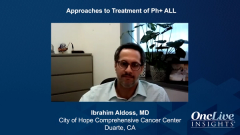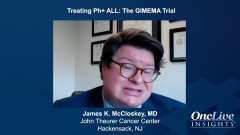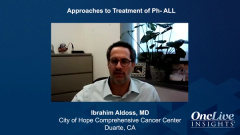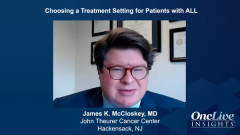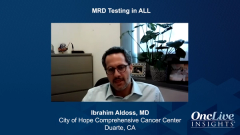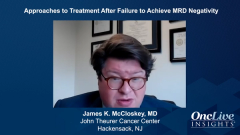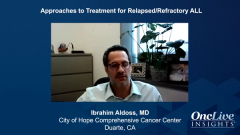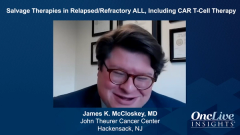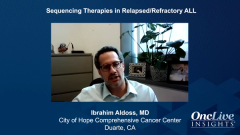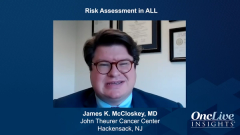
Approaches to Treatment After Failure to Achieve MRD Negativity
Insights on how to approach an acute lymphocytic leukemia patient who is MRD positive after induction therapy.
Episodes in this series

Ibrahim Aldoss, MD: One interesting question, James and it's very debatable still. Is someone with persistent MRD [minimal residual disease] and, let's say, after consolidation only MRD, and they get blinatumomab and given the reason they fell under longer follow-up from the BLAST study, where they compared patients who went to transplant versus no transplant, what's your approach at this time? Let's say that they still have persistent MRD after consolidation. You give blinatumomab. They become MRD-negative. Are you using the blinatumomab as a definitive therapy or more bridge for transplant in this setting?
James K. McCloskey, MD: That's a great question. For us, we typically err on the side of caution, and I'm conservative. The fact, if you look at the BLAST study, most of those patients did go onto transplant. And we certainly recognize those patients still represent a high-risk group of patients. We, typically, do spend a lot of the time looking at their donor, their performance data, the toxicities that they're likely to encounter with transplant. But if patients have a good donor, certainly in the adult world, and they were MRD-positive, we are typically looking at blinatumomab as a bridge currently. As more data accumulates and as we get a better sense, that may change. And anything to your point, most of us feel that if we move these therapies up even earlier that we would feel a lot more comfortable avoiding transplant in a lot of people. But, as an adult oncologist, particularly, we would typically pursue transplants for those folks.
Ibrahim Aldoss, MD: I agree with you. This is still our approach. It's a very interesting area of research, and I agree, most patients on the BLAST study went through transplant. It's hard to say if it's truly the same outcomes as non-transplant patients. At least, in the BLAST study, it seems the one who were treated with the earlier remission, they tend to do better. It's finding the subset that could benefit and can have moderate remission without transplant. But, as you said, this time, we will still recommend going through consolidation with transplant to maximize the chances of cure for this patient.
Transcript Edited for Clarity


